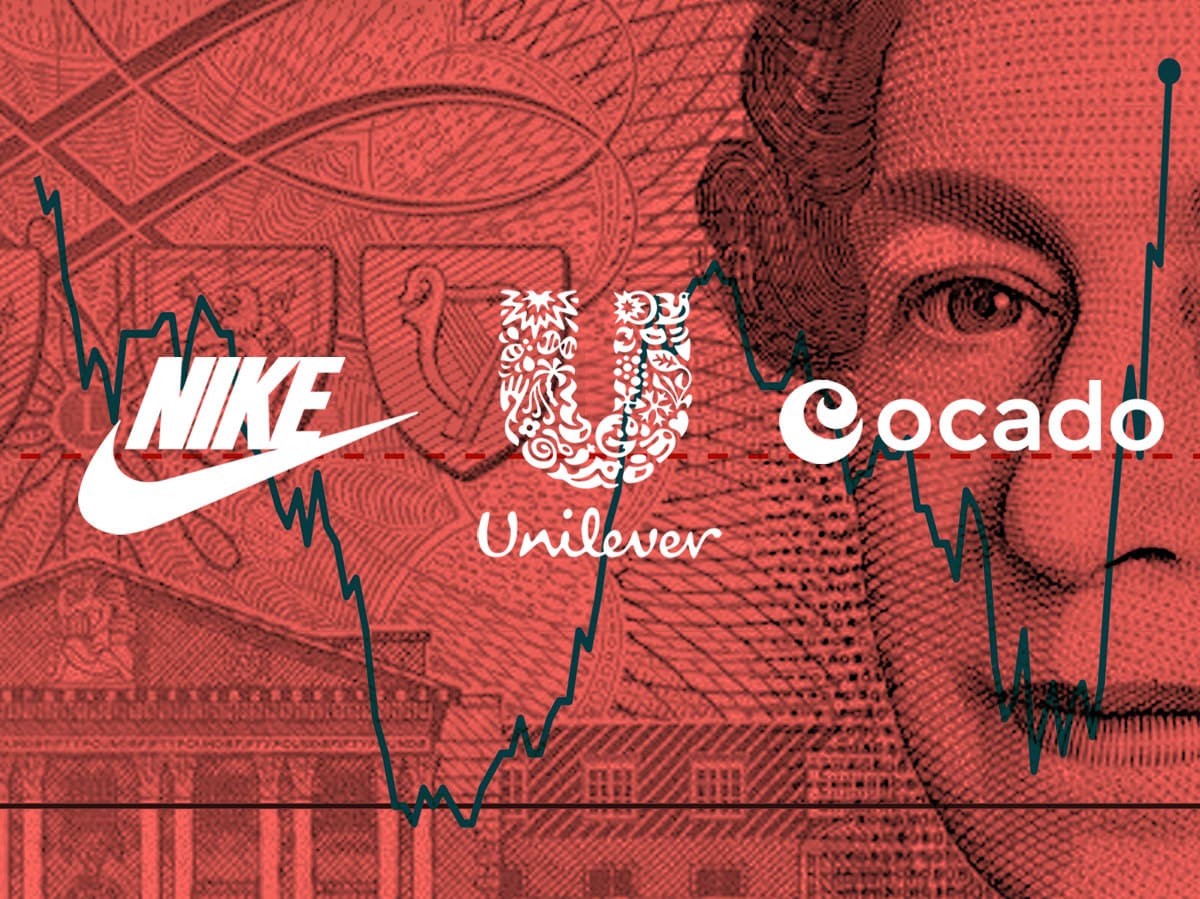Shares in consumer staple stocks Unilever and Ocado have been hit by the UK’s inflation rate rising at its fastest pace in 30 years. Spiking inflation in the US has also led to a considerable pullback in consumer discretionary stocks like Nike. With rising costs and lower earnings forecast, will these stocks be able to recover?
Since the start of 2022, the share prices of Nike [NKE], Unilever [ULVR] and Ocado [OCDO.L] have all seen double-digit drops as increasing inflation and, in turn, falling purchasing power impacts business operations and investor outlooks.
Inflation in both the US and UK has been on the rise since last year, with factors such as Covid-19 supply chain issues and rising energy costs fuelling the immense spike seen in the cost of living. In the US, the consumer price inflation (CPI) rate grew 0.8% month-over-month to 7.9% in February. Meanwhile, the UK’s CPI also rose by 0.8% in February to a 30-year high of 6.2%.
Rallying inflation has multiple negative impacts, one being the downward effect it can have on consumer stock prices. With costs spiking, this creates economic uncertainty as people are left with less disposable income. Firms lowering earnings forecasts, as a result, further exacerbates the situation.
Increased costs see Nike suffer
A look at Nike shows these impacts in practice. Higher inflation has led to higher operational costs for the retailer, which, in turn, has increased its prices to match. More broadly, the UK clothing and footwear sector saw prices rise by 8.9% year-on-year in February.
The Nike share price has suffered as a result. The stock has fallen 14.5% over the past six months, closing at $129.38 on 7 April. In the year-to-date, shares in the retailer have seen a more dramatic fall of 22.2%.
However, in its latest results, Nike revealed it had seen a 5% increase in revenue year-on-year, showing demand for its product had not yet wavered amid inflation. However, the company also reported it had “lower full-price product margins largely due to increased freight and logistics costs.” Within the period, Nike also saw its net income fall by 4% to $1.4bn, while its diluted earnings per share also sank by 3%.
Ocado’s falling share price
Online grocery retailer Ocado is another example of a business that is feeling the impacts of rising inflation. The stock’s price has dipped 26.7% year-to-date, closing at 1,229.50p on 7 April.
While this is in part due to the “euphoria” of easing Covid-19 restrictions, the business also reports concerns with the uncertain economic outlook. In its latest trading update, Ocado stated how “significant increases in raw materials and product cost prices, energy, utilities, and dry ice through Q1 have added further cost headwinds for the grocery industry in the UK.”
Highlighting the impact this has on consumers, it further went on to state how the group “will continue to monitor the market to ensure alignment on prices and delivery of fair value to customers”.
Due to rising costs for consumers, basket sizes have decreased by 15% year-on-year and revenue is down 5.7% in the latest quarter. Employing a wider outlook, the firm also downgraded full-year growth expectations from in the high-teens to closer to 10%.
Inflation’s squeeze on Unilever’s profitability
Fast-moving consumer goods (FMCG) firm Unilever has also taken a hit due to inflation. The business recently stated how it expects rising inflation to impact profitability for the next two years, with it creeping as high as 20% across the consumer goods industry.
Chief executive Alan Jope recently stated that “the biggest challenge we will face in 2022 is navigating unprecedented input cost inflation,” with the firm expecting the increase to shave between 140 to 240 basis points off its underlying operating margin this year.
In turn, this has highlighted wavering confidence in an array of brands under the Unilever umbrella. Their ability to transition rising costs directly to consumers has led to a more negative outlook on the firm for the foreseeable future.
This is reflected in Unilever’s share price. As of the 7 April closing price of $46.12, the stock has fallen 11.2% in the last six months and 13.4% in the year to date.
The impact of inflation is clear to see in the performance of these stocks over the past few months. While some, such as Nike, have managed to partially weather the storm, inflation is expected to continue to rise until spring. As such, 2022 may see Nike, Unilever and Ocado’s share prices struggle as the cost of living continues to spike.
Continue reading for FREE
- Includes free newsletter updates, unsubscribe anytime. Privacy policy





